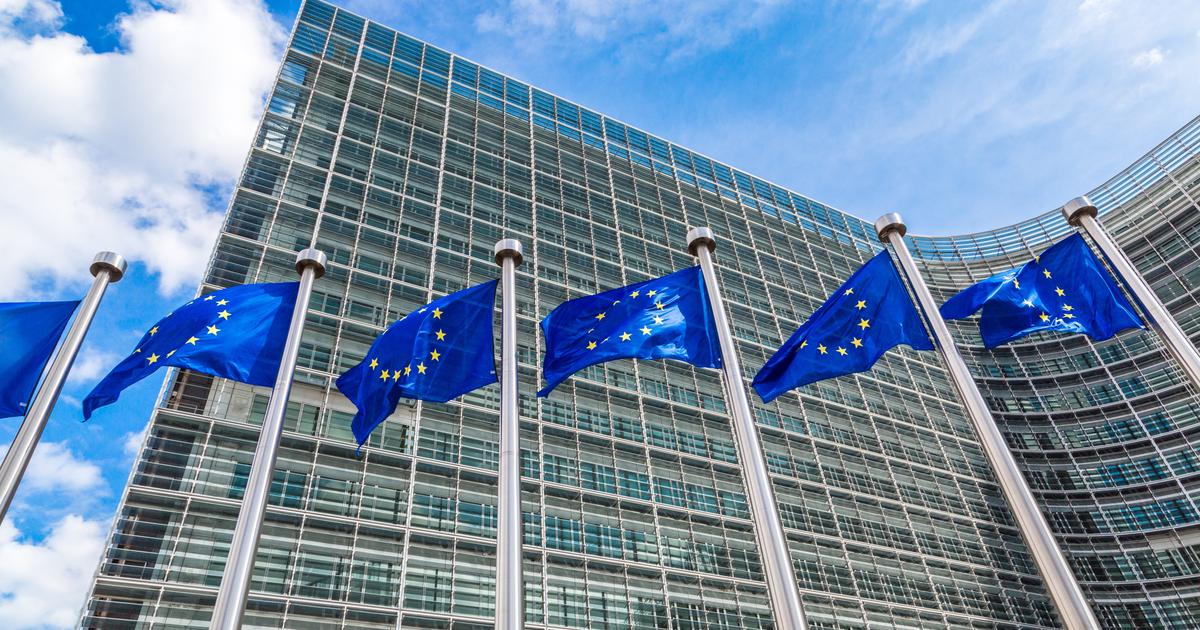Scalded by the deterioration of the independence of the press in Hungary and Poland in particular, the European Commission has decided to adopt a law to regulate concentrations in the media and protect journalists from pressure.
To discover
LIVE- Death of Elizabeth II: follow minute by minute reactions to the death of the Queen of England
This draft regulation, of which AFP has obtained a provisional version, provides guarantees for the editorial independence of editorial staff vis-à-vis political power or industrialists and requirements for transparency on media ownership.
The "
media freedom law
", which will be officially presented at the end of next week by the Commission, will allow the latter to initiate proceedings before the European courts in the event of non-compliance.
Read alsoJustice, media, corruption: Brussels attacks Poland and Hungary
The Vice-President of the Commission, Vera Jourova, has repeatedly expressed a feeling of powerlessness by pointing out the “
limited
” room for maneuver of Brussels in the media sector.
Particularly in the face of the creation of the pro-Viktor Orban media conglomerate in Hungary in 2018, for which European competition rules could not apply.
The Commission now wants each State to have the obligation to assess concentrations in the media from the point of view of their effect on pluralism and editorial independence, based on a certain number of criteria.
media council
A new European Media Council, bringing together representatives of national regulatory authorities, would be responsible for issuing an opinion on such concentrations likely to affect the functioning of the common market.
“
While consolidation in the media can be welcome from the point of view of business resilience, it can also pose problems of editorial independence
”, underlined the Commissioner for the Internal Market, Thierry Breton, in a speech at the end of November 2021.
The text protects the secrecy of sources and prohibits the use of spyware against journalists and members of their families - even if exceptions are possible in the name of "
national security
".
A provision in response to the recent Pegasus and Predator scandals, which notably splashed the Polish, Hungarian and Greek authorities.
In public service media, appointments of leaders must be made according to a “
transparent
” and “
non-discriminatory
” procedure and funding must be “
adequate and stable
”.
In 2021, the former Slovenian Prime Minister Janez Jansa had for months deprived of funds from the national press agency, STA, whose editorial line he criticized, attracting several calls to order from Brussels.
Transparency is also required in terms of state advertising: public authorities must publish the amounts spent and the media that benefit from them.
In its latest report on the rule of law in the European Union, the Commission was concerned to see pro-government media in Poland privileged in this distribution.
The public must also have “
easy
” access to the name of the owners of a medium.
News organizations must take steps to “
ensure that journalists are free to make individual editorial decisions in the exercise of their work
”.
"Rough Fight"
This draft regulation is described as "
major progress
" by the secretary general of the NGO Reporters Without Borders Christophe Deloire, who welcomes "
a desire to guarantee the integrity of information
".
But European publishers are up against this initiative in which they see a "
threat
".
For the European Magazine Media Association (EMMA) and the European Association of Newspaper Publishers (ENPA), it violates in particular “
the freedom to invest and run a business
”.
"
We see no reason to harmonize media legislation at European level in the direction of tighter control by media regulators or, indirectly, by the Commission
", explains the AFP its executive director, Ilias Konteas.
Read alsoPoland: the president vetoes a controversial media law
This law will be "
a tough fight
", acknowledged Vera Jourova.
“
Some Member States want to be able to influence the media, they will say that the Commission wants to confiscate their power.
Some media owners are benefiting from the current situation, they will shout that we are threatening their business
”.

